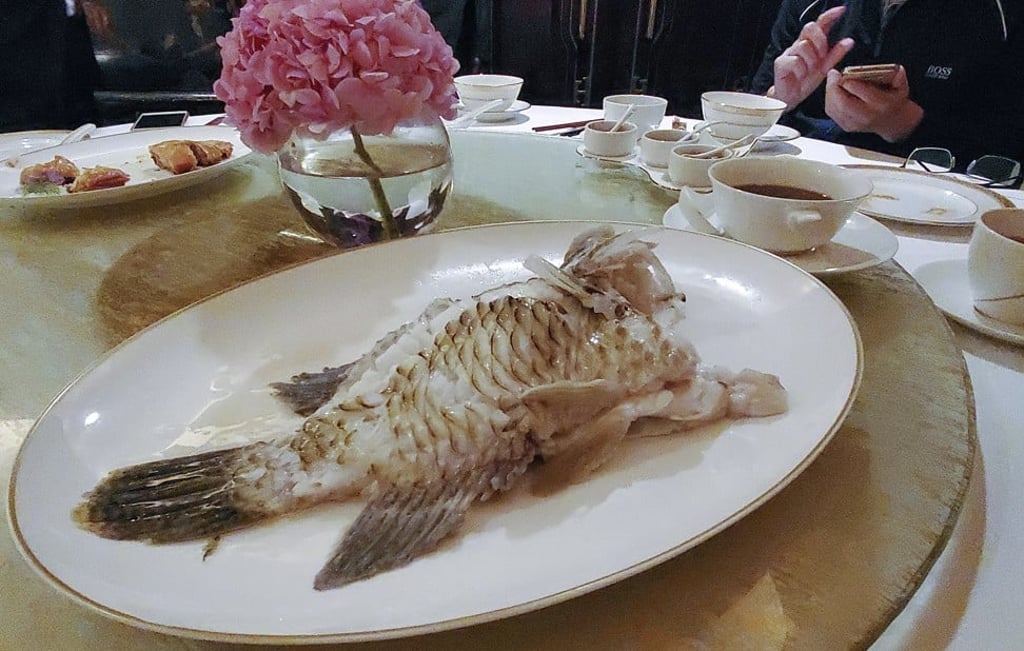The Humphead wrasse: one of the world’s most endangered coral reef fish, and a delicacy for affluent Chinese diners
- The scarcity of the fish and its price tag of up to US$850 per kilo has only made it more appealing to those who can afford it
- Trade in the Napoleon wrasse, as it is also known, is difficult to trace and far from sustainable

The dinner bill for the two guests in the one-Michelin-starred Summer Palace restaurant, at the Island Shangri-La, came to HK$7,400 (US$940), and yet the diners’ verdict on the fish that was the centrepiece of their meal was well short of five stars. “It tasted a bit of gasoline,” one of them remarked.
Days later, when they tucked into the same dish at the three-Michelin-starred T’ang Court, in Tsim Sha Tsui’s Langham Hotel, they were presented with a bill of close to HK$8,000. Their review, however, was even cooler. “Flat and bland,” the other diner concluded. “It was nothing special.”
Underwhelming as the dishes may have been, the fish served up at two of Hong Kong’s leading hotel restaurants was far from ordinary. The diners – independent environmental activists who prefer to remain anonymous – were feasting on humphead wrasse, also known as Napoleon wrasse, one of the world’s most endangered coral reef fish.
A gentle giant of the Indo-Pacific, the magnificent fish is among the world’s biggest reef species, growing up to six feet in length and living for up to 30 years. It is a favourite of divers for its vivid colouring, natural curiosity and the distinctive hump on its head.

However, it is also a favourite among moneyed diners in Hong Kong and mainland China, who are prepared to shell out up to HK$6,500 a kilo for live juvenile Napoleon wrasse (called so mei locally) drawn from a diminishing stock in Indonesia, the only legal exporter of the species. The fish is also native to the waters of the Philippines and Sabah, Malaysia.
Because the Napoleon wrasse is rare and matures slowly, the rampant trade, in mostly juvenile fish – which are either wild-caught or ranched (taken from the wild and grown in pens in coastal waters) – is putting the species in deepening peril. Environmentalists believe there should be a moratorium on its sale until a sustainable way can be found of supplying luxury demand without putting the fish, which is listed under the Convention on International Trade in Endangered Species (CITES) Appendix II, at further risk.